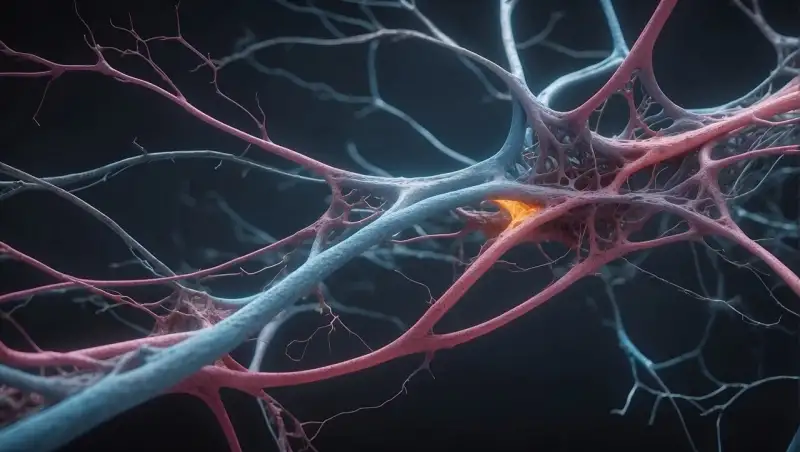Key brain protein may hold answers for memory loss and neurodegenerative diseaseshttps://share.google/WLyzJBikozYZ84HlsJul 11, 2025

 neuron.webp (21.82 kB . 800x452 - viewed 414 times)
neuron.webp (21.82 kB . 800x452 - viewed 414 times)Credit: Pixabay/CC0 Public Domain
Scientists have discovered how a key protein helps maintain strong connections between brain cells that are crucial for learning and memory.
Results of the study, published in the journal Science Advances, could point the way to new treatments for traumatic brain injuries and diseases, such as Parkinson's and Alzheimer's, the scientists said.
Their research, led by a Rutgers University-New Brunswick professor, uncovered a previously unknown role for cypin, a brain protein.
Members of the research team found that cypin promotes the presence of tags on specific proteins at synapses, namely the tiny gaps where the brain cells, known as neurons, communicate. The marking helps ensure that the right proteins are in the right place, allowing the synapses to work properly.
The researchers said the insight has potentially profound implications for the treatment of brain disorders.
"Our research indicates that developing treatments or therapies that specifically focus on the protein cypin may help improve the connections between brain cells, enhancing memory and thinking abilities," said Bonnie Firestein, a Distinguished Professor in the Department of Cell Biology and Neuroscience in the School of Arts and Sciences and an author of the study.
"These findings suggest that cypin could be used to develop treatments for neurodegenerative and neurocognitive diseases, as well as brain injuries."
Firestein has been studying cypin for more than two decades. Her latest work uncovered several important aspects of how cypin functions and why it is significant for brain health.
One of the crucial discoveries is that cypin helps add a special tag to proteins in synapses connecting neurons. This tag ensures proteins are correctly positioned and able to send signals effectively. Proper tagging and movement of proteins are essential for the neurons to function correctly.
Another important finding is that cypin interacts with a complex of proteins, known as the proteasome, which is responsible for breaking down proteins. When cypin attaches or binds to the proteasome, it slows down this breakdown process, leading to an accumulation of proteins. This buildup can positively affect various cellular functions, which are important for the communication between neurons.
Firestein's research also shows that when there is more cypin present, the levels of important proteins in the synapses increase. These proteins are vital for effective communication between neurons, empowering learning and memory.
Additionally, cypin increases the activity of another protein called UBE4A, which also helps with the tagging process. This indicates that cypin's influence on synaptic proteins is partly because of its effect on UBE4A.
The work highlights the importance of cypin in maintaining healthy brain function and its potential as a target for therapeutic interventions.
"Even though this study is what we call 'basic research," it can eventually be applied in practical, clinical settings," said Firestein, who is already conducting such "translational" work in parallel. Translational research is a type of research that takes discoveries made in the lab and turns them into practical treatments or solutions to improve human health.
Cypin's significant role in the workings of the brain's synapses makes it highly relevant to the potential treatment of neurodegenerative diseases and traumatic brain injury, she said. For example, healthy synaptic function is often disrupted in diseases such as Alzheimer's and Parkinson's.
In addition, the protein's role in promoting synaptic plasticity—the ability of synapses to strengthen or weaken over time—means it may be used to help counteract the synaptic dysfunction seen in neurodegenerative diseases and brain injuries.









